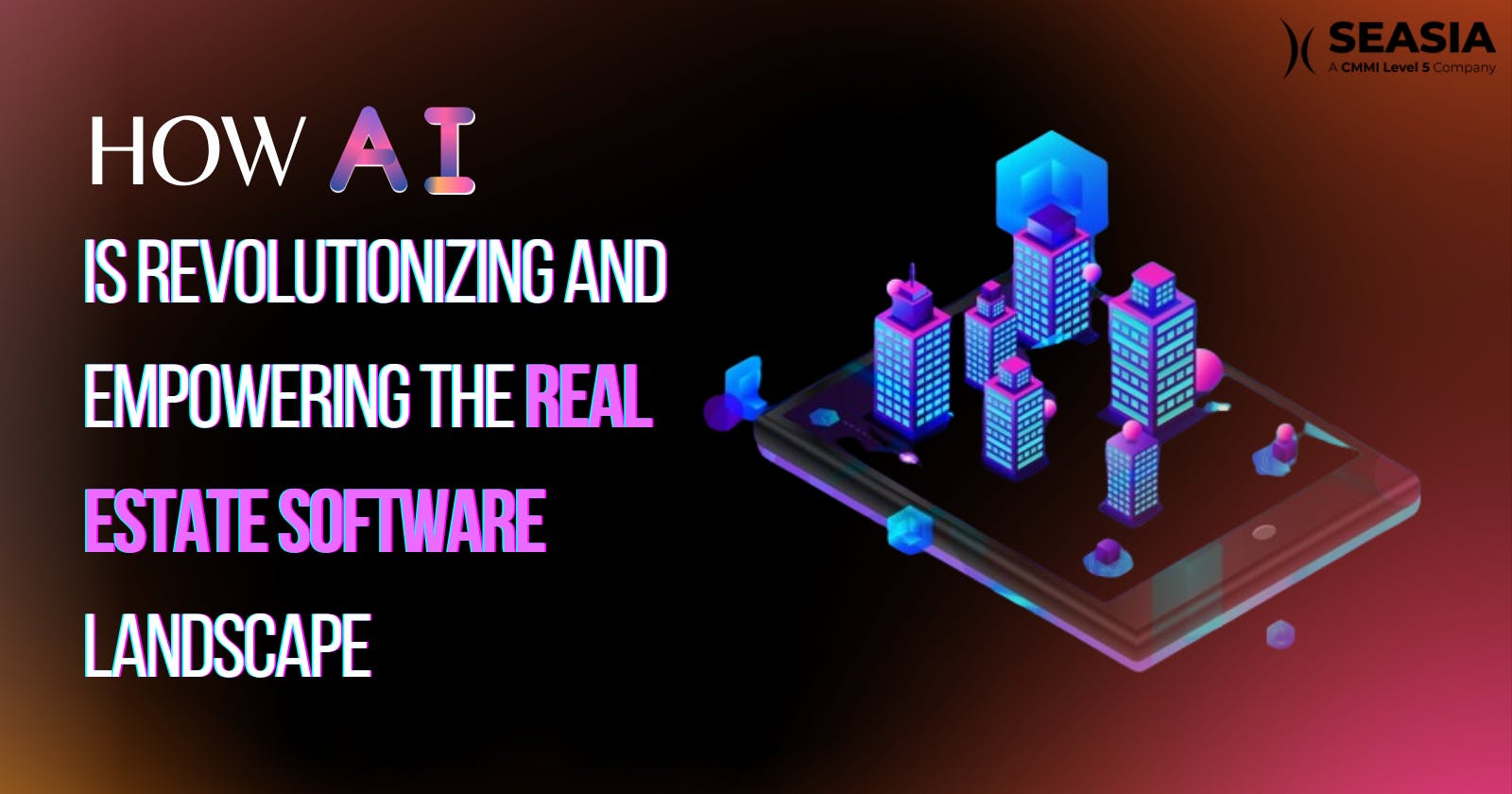How AI is Revolutionizing and Empowering the Real Estate Software Landscape
Groundbreaking transformation of the real estate software landscape as artificial intelligence takes center stage.
The entire world today is engaged in a dialogue about the fact that Artificial Intelligence (AI) is going to replace human jobs, even though the prevalence of AI across several industries is unquestionable.
The real estate industry has always been one of those sectors that have welcomed the adoption of AI with open arms. This has given the developers a free hand in designing AI-powered real estate software solutions that enable potential buyers to have realistic and interactive property experiences.
The growing adoption of AI in real estate is not just anecdotal; it's fully backed by data. According to Global Industry Analysis And Forecast by Maximize Market Research, AI in the real estate market has been anticipated to reach an astonishing value of USD 1335.89 billion by 2029.
What is Artificial Intelligence (AI) in Real Estate?
Artificial Intelligence (AI) has seen a lot of advancement in how the real estate industry professionals use it. This has resulted in a profound transformation in the industry, enabling industry experts to make data-driven decisions, significantly improve customer experiences and simplify different real estate processes.
AI-powered real estate software solutions are revolutionizing the industry by automating tasks, providing predictive insights, and optimizing marketing techniques. AI in real estate incorporates an extensive range of technologies, including machine learning, natural language processing, and computer vision.
The real estate professionals are employing these technologies to develop innovative solutions that address the challenges faced by them, such as:
· Predictive Analytics - AI can predict prospective property values, rental rates, and market trends, enabling real estate professionals to make informed investment decisions and maximize returns.
· Property search and analysis - AI can research vast amounts of real estate data to determine potential investment opportunities, disclose hidden market trends, and provide personalized property recommendations to buyers and investors.
· Chatbots and virtual assistants - AI-powered chatbots and virtual assistants can provide 24/7 customer support, respond to questions, and schedule appointments, freeing real estate professionals to concentrate on higher-value activities.
· Virtual property tours - AI-powered virtual and augmented reality technologies allow potential buyers to experience properties remotely, reducing the need for physical site visits.
Can AI change the world of Real Estate?
The impact of AI on the real estate industry is already being felt, and it is only expected to grow in the years to come. AI is transforming how real estate professionals work, making them more efficient, productive, and data-driven. AI also empowers real estate businesses to provide a better customer experience, increasing satisfaction and loyalty.
Here are some of the ways AI is changing the world of real estate:
· Automating Routine Tasks - AI automates numerous mundane and time-consuming tasks that real estate professionals have traditionally performed, such as data entry, lead generation, and property research. This frees professionals to focus on more strategic activities, such as building client relationships and negotiating deals.
· Predictive Insights - AI gives real estate professionals predictive insights into market trends, property values, and buyer behavior. This data assists professionals in making informed decisions about investments, marketing strategies, and pricing.
· Improved Customer Experiences - AI enhances customer experiences by providing personalized recommendations, responding to questions 24/7, and scheduling appointments. This leads to increased customer satisfaction and loyalty.
AI in Real Estate: Top Trend Projections
Over the past few years, Artificial Intelligence (AI) has completely transformed the way real estate experts market, manage, and analyze different types of properties. Real estate experts anticipate AI to open further opportunities to improve efficiency, personalization, and decision-making across the entire real estate market. Following are a few of the most anticipated AI trends you can see in the industry very soon:
· Emotion-Driven Property Marketing
AI enables real estate professionals to understand and tap into the emotional drivers of potential buyers and renters. By analyzing responses to property-related content, AI can identify emotional patterns and preferences, allowing for tailored marketing strategies that resonate with individual prospects.
· Neighborhood Insights for Informed Decisions
AI empowers buyers and renters to make educated decisions about their living environments. By analyzing data on neighborhood safety, amenities, education, and lifestyle factors, AI can provide comprehensive insights into the quality of life in different areas.
· Tenant Screening and Behavior Analysis
AI improves tenant screening processes, allowing landlords to identify reliable and responsible tenants. By analyzing credit history, rental history, and behavioral patterns, AI can predict tenant behavior and minimize the risk of defaults or property damage.
· Legal Compliance and Risk Mitigation
AI streamlines legal compliance for real estate specialists, ensuring adherence to intricate regulations and contractual responsibilities. AI can scan legal documents, determine potential risks, and generate compliance reports, reducing the risk of legal pitfalls.
· AI-Driven Urban Planning for Sustainable Cities
AI transforms urban planning, enabling cities to make informed decisions about infrastructure development, transportation networks, public spaces, and sustainability initiatives. AI can analyze vast datasets, including demographics, traffic patterns, and environmental factors, to create more efficient, sustainable, and habitable urban environments.
Conclusion
The future of real estate is undoubtedly intertwined with artificial intelligence (AI). AI is revolutionizing the industry by automating tasks, providing predictive insights, and enhancing customer experiences.
As AI technology continues to evolve, its impact on the real estate software landscape will only grow more profoundly, transforming how properties are marketed, analyzed, managed, and experienced. Embrace the AI revolution and watch your real estate business thrive in the years to come.
